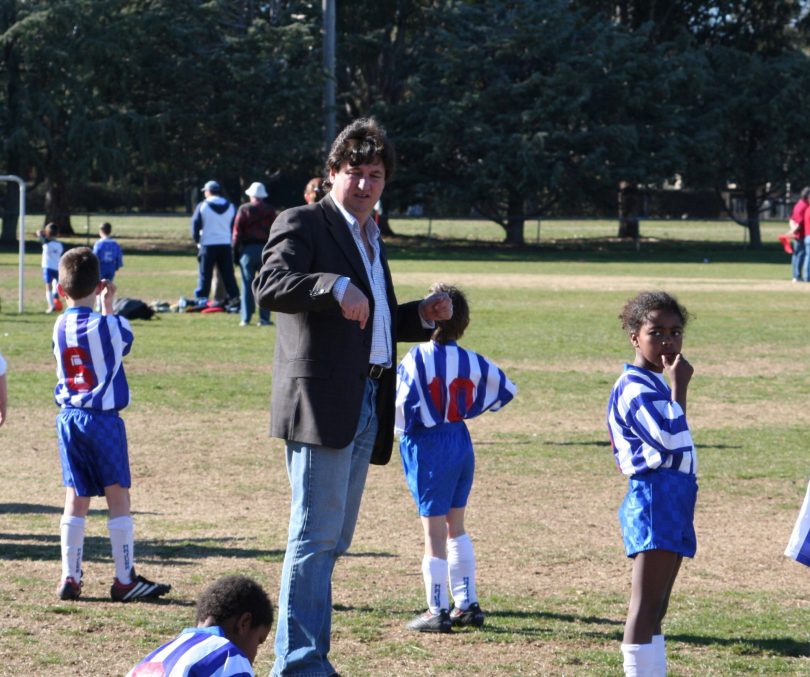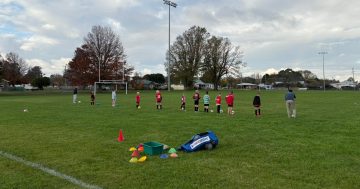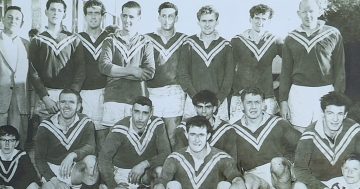
Good to see they are all listening to the coach. Photo: Supplied.
Over the years in Canberra, I have coached and managed a wide range of sports from juniors to seniors. I’m sure many of you have done the same.
When I have been coaching junior soccer and rugby with children aged from five to 10 years, my approach was based on the principle that I should be encouraging participation.
Once I became involved with the older age groups, the intensity lifted, but once again there was a focus on the enjoyment of the sport and the enjoyment of working alongside others. I quickly found out that if kids liked it, they would be back the following week.
In this current day and age of choice, many will opt for screen time over physical activity, which is why I felt as though it was important to make each and every child feel as though they were winners. If that meant every child was given an opportunity to captain the team or kick goals or be goalkeeper, so be it.
My belief was that if kids at a young age were encouraged to enjoy the activity rather than focus on winning at all costs, it would lead to them staying involved in sport for many years.
This is why the public commentary in NSW around the Premier’s Sporting Challenge is so disappointing. The Challenge rewards children from kindergarten to year two with a gold certificate, regardless of individual performance over 10 weeks. The aim is to foster positive attitudes towards sport.
In the ACT I was involved in a similar program in Canberra’s primary schools as part of the Chief Minister’s Challenge, which was administered by the Physical Activity Foundation of which I was a board member.
Once again, the aim of the Challenge was to encourage physical activity. It wasn’t about being the best. It was about participating in physical activity.
Suggestions that it creates acceptance of mediocrity, I believe, are nonsense. The focus is clearly on encouraging kids to be active and healthy and develop a will to exercise.
It’s not about robbing children of a healthy sense of competition – competition comes later in life. In primary school, it should be about enjoyment rather than being competitive.
One of the issues confronted by community sport in Canberra has been retention beyond a certain age where kids are presented with options that draw them away from physical activity.
I have been of the view that if we push kids too hard at an early age, while some thrive, there are others who are unable to deal with it. They simply walk away from sport and never return.
Of course, as kids getting older and go into high school, the concept of competition evolves naturally. It doesn’t have to be manufactured.
Taking a holistic approach to guiding children through sport, making it as enjoyable as possible, doesn’t mean we are setting them up as unable to cope with defeat.
There are plenty of people involved in sport and parenting young athletes who have a contrary point of view believing that we are making kids soft by rewarding participation.
Surely, though, we should encourage primary age children to experience the enjoyment of sport for all its attributes, including helping motor skill development, building relationships, discipline, understanding rules, and just having fun, rather than seeing it as purely about winning?
Original Article published by Tim Gavel on The RiotACT.
















